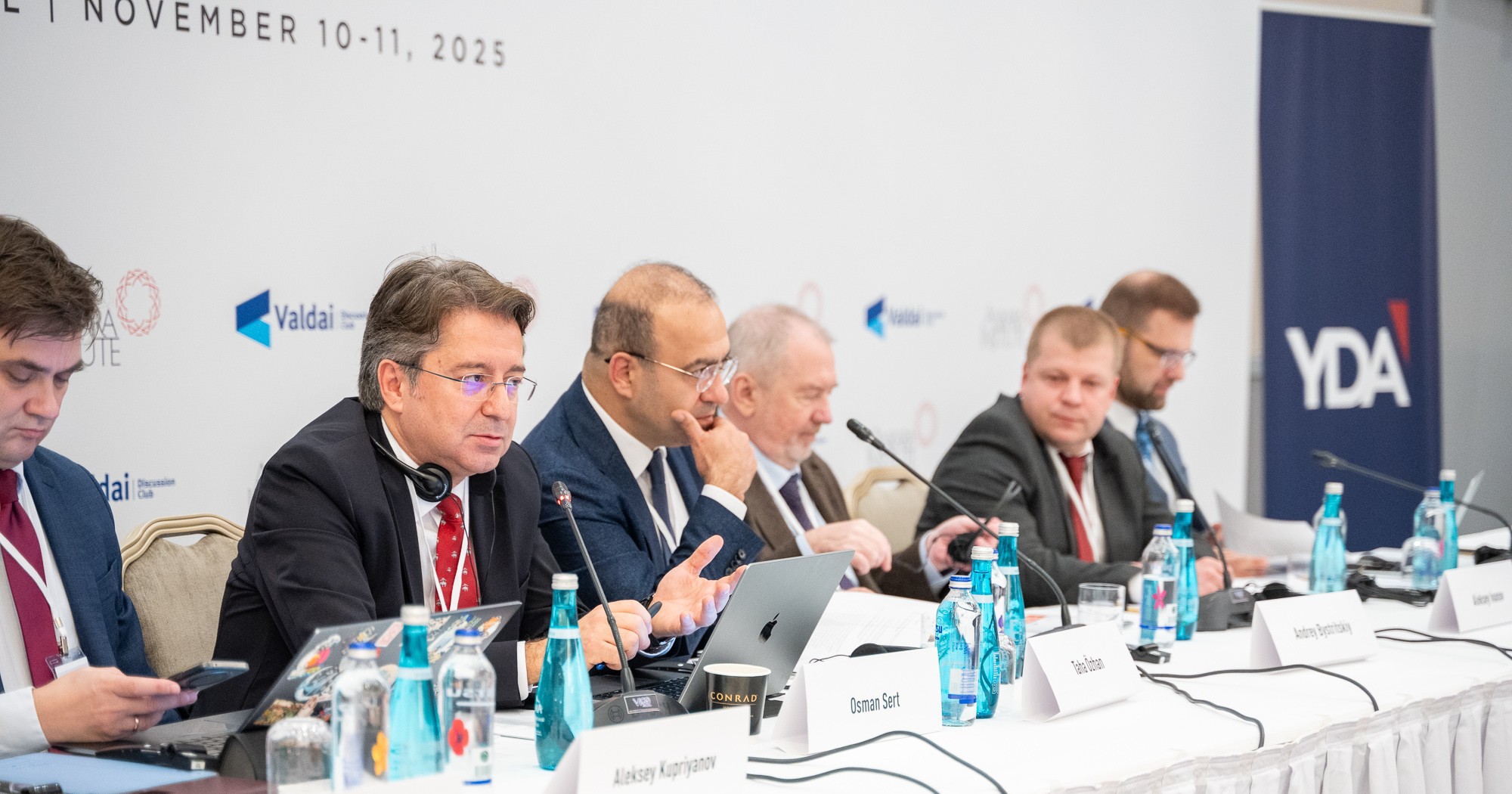
Jointly organized by the Ankara Institute and the Valdai Discussion Club, the “16th Asian Conference: Eurasia in a Fragmented World” was successfully held in Istanbul on 10–11 November 2025. The Ankara Institute was proud to co-host the Valdai Forum, which convened in Istanbul for the first time.
Under the theme “Eurasia in a Fragmented World,” the conference brought together high-level diplomats, academics, think-tank representatives, and members of the media from various countries—including India, Russia, Qatar, Saudi Arabia, and Türkiye. The discussions focused on the transformation of the global order, the new dynamics of regional geopolitics, and the strategic visions of Asia’s emerging actors.
The two-day conference began with an opening session exploring the strategic autonomy pursuits of middle powers amid growing geopolitical fragility.
The main sessions of the conference focused on global and regional dynamics:
Session 1, “Global (Dis)Order and Eurasia,” examined the new power balances and alliances emerging from the disintegration of the post-Cold War era.
Session 2, “Türkiye, Russia, and the New Geopolitics of Eurasia,” focused on the interaction among regional powers and evolving patterns of cooperation in energy, defence, and technology.
The afternoon session on “Transport and Infrastructure Connectivity” highlighted the strategic importance of the north-south and east-west corridors that form the backbone of Eurasian integration.
Session 4, “Regional Connectivity and Changing Orders: Middle East, South Caucasus and Central Asia,” analyzed the emerging political and economic structures in these regions.
The conference concluded with the final panel, “BRICS and the Global (Dis)Order,” which questioned whether the BRICS grouping can offer a new model of multilateralism at a time when existing international institutions are under strain.
Over the course of two days, the intensive discussions aimed to shed light on Eurasia’s future role, the limits of global governance, and the emergence of a new international architecture.























